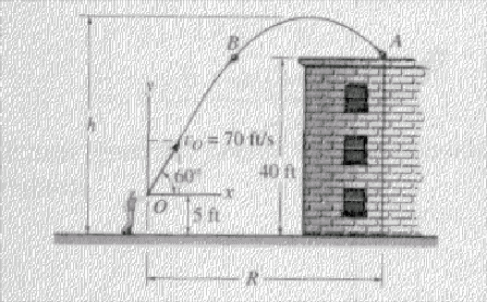DEFINITIONS OF THE FIVE CORE COMPETENCY AREAS ASSESSMENT AND
Definitions 100 Series Avoid Adverse Impacts Means toDEFINITIONS OF KEY TERMS FOR THE WORK OF
FONT DEFINITIONS FONTFACE {FONTFAMILYCAMBRIA MATH PANOSE12 4
FONT DEFINITIONS FONTFACE {FONTFAMILYCAMBRIA PANOSE12 4 5
MODULE 3 DEFINITIONS CHAMP D’APPLICATION PRINCIPES
01 NCAC 15 0202 DEFINITIONS WHEN USED IN THIS
Definitions of the Five Core Competency Areas
Definitions of the Five Core Competency Areas
Assessment and Evaluation
Definition: A competent professional psychologist draws on diverse methods of evaluation, determining which methods are best suited to the task at hand, rather than relying solely or primarily on formalized testing as an automatic response to situations requiring assessment. The appropriate subject of evaluation may either be an individual person, or a couple, family, organization or system. The skills required for assessment can and should be applied to many situations beyond that of initial evaluation, including, for example, treatment outcome, program evaluation, and problems occurring in a broad spectrum of non-clinical settings. The primary purpose of psychological assessment is to provide an understanding that informs a practical plan of action. It may result in a diagnostic classification or in the identification of strengths or competencies.
Knowledge should include: Knowledge of assessment methods, populations served, human development, diagnosis.
Skills should include: Formulation of referral question(s), selection of methods, collection and processing of information, utilization of psychometric methods, formulation of hypotheses, diagnoses, and action plans, and report writing.
Interventions
Definition: The intervention competency is conceptualized as activities that promote, restore, sustain, and/or enhance positive functioning and a sense of well-being in clients through preventative, developmental and/or remedial services. A broad, comprehensive vision of the intervention competency should include theory as well as the application of knowledge and skills.
Knowledge should include: Knowledge of varied interventions with individuals and systems (e.g., families, organizations); of the relative efficacy of interventions to promote health and wellness; of the positive aspects of all major approaches, reflecting openness to varied viewpoints and methods; of when to make appropriate referrals and when to consult; and of cultural context and diversity, and implications for intervention.
Skills should include: The selection of appropriate intervention methods; analysis of information, development of a conceptual framework, and communication of this to the client, as appropriate; gathering information about the nature and severity of problems and forming hypotheses about factors contributing to the problem through qualitative and quantitative means; establishment and maintenance of professional relationships with clients in all populations served; establishment and maintenance of appropriate interdisciplinary relationships with colleagues; the application of appropriate knowledge to provide effective intervention that addresses the needs of clients
Research
Definition: Professional psychologists should have research training such that they develop a basic understanding of and respect for the scientific underpinnings of the discipline, knowledge of methods to be good consumers of the products of scientific knowledge, and sufficient skills in the conduct of research to be able to develop and carry out projects in a professional or academic context.
Knowledge should include: Knowledge of research methods and of the applications of scientific research; applied statistics and measurement theory; the logic of different models of scientific research (from laboratory experimentation to quasi-experimental and field research); and quantitative and qualitative research methods (including observation and interviewing), with respect to the nature of reliability and validity in the gathering and interpretation of data.
Skills should include: Critical reasoning skills in interpreting and evaluating research procedures and findings; appropriate applications of various research approaches; and ability to write professional and empirically based reports.
Ethics and Standards
Definition: Psychologists conduct themselves in an ethical manner consistent with the Canadian Code of Ethics for Psychologists. They conduct professional relationships within the context of the Code and Standards for the Profession.
Knowledge should include: Knowledge of the ethical principles of the Canadian Code of Ethics and the ethical decision making process promoted with the Code, the Standards of Professional Conduct, the Standards for Providers of Psychological Services, and, as appropriate, other standards such as Standards for Psychological Tests and Measurements, Standards for Conducting Psychological Research, as well as relevant jurisprudence.
Skills should include: Application of the ethical decision making process, pro-active identification of potential ethical dilemmas and application of the process for resolution of ethical dilemmas.
Interpersonal Relationships
Definition: This basic competency forms part of all the other competencies. Psychologists normally do their work in the context of interpersonal relationships (parent-child, spouses, boss-employee, etc.). They must therefore be able to establish and maintain constructive working alliances with their clients and possess adequate sensitivity to cultural issues.
Knowledge should include: Knowledge of theories and empirical data on the professional relationship, such as interpersonal, power relationships, therapeutic alliance, interface with social psychology, and fluctuations of the therapeutic/professional relationship as a function of the intervention setting; knowledge of self, such as motivation, resources, values, personal biases and factors that may influence the professional relationship (e.g., boundary issues); and knowledge of others, such as macro-environment in which the person functions (e.g., work, national norms) and micro-environment (e.g., personal differences, family, gender differences)
Skills should include: Evidence of effective communication, and evidence of establishment and maintenance of rapport, and of trust and respect in professional relationships.
06096 DEPARTMENT OF ENVIRONMENTAL PROTECTION CHAPTER 371 DEFINITIONS OF
06096 DEPARTMENT OF ENVIRONMENTAL PROTECTION CHAPTER 520 DEFINITIONS FOR
1 ?XML VERSION10 ENCODINGUTF8 ? 2 DEFINITIONS NAMESPACES DELETED
Tags: areas assessment, competency, areas, assessment, definitions
- SALARIOS 1473 SALARIOS SALARIO PROMEDIO ASOCIADO A TRABAJADORES ASEGURADOS
- İLAN BURSA BÜYÜKŞEHİR BELEDİYESİ BAŞKANLIĞINDAN BURSA BÜYÜKŞEHİR BELEDİYESİ EMLAK
- R EGULAMIN RAJDU ROWEROWEGO „Z NAPOLEONEM DO WIELKOPOLSKI” ROWEROWY
- 18 RJEŠENJE O PRIVREMENOM RASPOREDU ŽENE ZA VRIJEME TRUDNOĆE
- MEMORIAL DESCRITIVO GENERALIDADES O PRESENTE MEMORIAL DESCRITIVO DE
- REPUBLIKA HRVATSKA VMOOVL10 SISAČKO MOSLAVAČKA ŽUPANIJA OPĆINA VELIKA LUDINA
- 50 CURRICULUM VITAE OF DMITRI MIKHAILOVICH BONDARENKO DMITRI M
- OPERATIVNO TEHNIČKI POSLOVI TURISTIČKOG VODIČA LUKA GRUŽ VODIČKU
- VAKSINER OG VAKSINASJONSKOMPLIKASJONER HOS HUND VETERINÆRSTUDENTENE JAANA HILLGREN OG
- SESIÓN DE APRENDIZAJE I DATOS GENERALES A IE
- FÓRMULAS APLICABLES A INVENTARIOS Y CUENTAS POR PAGAR 1
- A NAME…………………………… ADDRESS …………………………………… …………………………………… …………………………………… …………………………………… PHONE ………………………�
- FORMULARIOS DATOSSISTEMA DE CUENTA CORRIENTE SECRETARÍA EJECUTIVA CNIME SECRETARÍA
- ZAŁĄCZNIK NR 4 P R O J E K
- EGOVERNMENT APA YANG DIMAKSUD DENGAN EGOVERNMENT ?
- PRIJAVA NEPOŠTOVANJA KODEKSA POSLOVNE ETIKE OD STRANE ELEKTROTIMOKA ZAJEČAR
- HOJA INFORMATIVA BIOXIDO DE TITANIO COLOR BLANCO PARA
- ПЛАТНЫЕ МЕДИЦИНСКИЕ УСЛУГИ НА ЧТО НЕОБХОДИМО ОБРАТИТЬ ВНИМАНИЕ ПРИ
- SERVICIO DE JUVENTUD PROGRAMA DE OCIO NOCTURNO ALTERNATIVO BAT
- SPĒKĀ ESOŠS NO 22011998 PUBLICĒTSVĒSTNESIS 1617 22011998 SAEIMA IR
- PAX ROMANA BY LEA HOLMAN THE ROMAN REPUBLIC WAS
- C OMMUNITY DEVELOPMENT DEPARTMENT Z ONING DIVISION 135 WEST
- THE CHILDHOOD AUTISM SPECTRUM TEST (CAST) CHILD’S NAME
- NOTA INFORMATIVA SOBRE EL FORMULARIO DE REGISTRO DE FIRMAS
- FUNDING APPLICATION 2021 GRADUATE STUDENT SUPPORT PROGRAM (GSSP) ALL
- DEPARTAMENTO DE ASUNTOS DE VETERANOS VETERANOS ENCARCELADOS ¿PUEDE RECIBIR
- SKS YEMEKHANE TALİMATI DOKÜMAN NO TL026 İLK YAYIN TARIHI
- BE SMART – BUY SMART A SIMPLE GUIDE
- KARTA PRACY – GĘSTOŚĆ 1 OCEŃ PRAWDZIWOŚĆ KAŻDEGO ZDANIA
- LEJA DROFENIK ŠTIBELJ KRIZA V MONDRAGONU POSLEDICE FINANČNE KRIZE
 CREATING LINKS TO ARTICLES IN ELECTRONIC RESOURCES A CADEMIC
CREATING LINKS TO ARTICLES IN ELECTRONIC RESOURCES A CADEMICPOSTER ABSTRACT THE 2ND UK CRIME MAPPING CONFERENCE MODELLING
 GRUPO MUNICIPAL IZQUIERDA UNIDAVERDES GANAR ALCANTARILLA PROPUESTA PRIUV20190301 SOBRE
GRUPO MUNICIPAL IZQUIERDA UNIDAVERDES GANAR ALCANTARILLA PROPUESTA PRIUV20190301 SOBREMINUTA DE ACUERDO DEL CONSEJO DE ADMINISTRACION PARA ALCANZAR
ACCOUNTABILITY AND PERFORMANCE PROBLEMS OF EDUCATION SYSTEM AND SERVICES
NOTES SKYPE CALL ON SOVEREIGN DEBT WORKOUT MECHANISMS ON
 1 SE LANZA UNA PELOTA VERTICALMENTE HACIA ARRIBA DESDE
1 SE LANZA UNA PELOTA VERTICALMENTE HACIA ARRIBA DESDE 3 CONTRIBUTION TITLE FIRST AUTHOR1[ORCID NO] AND SECOND AUTHOR2[ORCID
3 CONTRIBUTION TITLE FIRST AUTHOR1[ORCID NO] AND SECOND AUTHOR2[ORCID LIFECYCLE DATA REQUIREMENTS GUIDE TABLE OF CONTENTS INTRODUCTION XIV
LIFECYCLE DATA REQUIREMENTS GUIDE TABLE OF CONTENTS INTRODUCTION XIV TC ESKİŞEHİR OSMANGAZİ ÜNİVERSİTESİ ALT BİRİM GÖREV TANIM FORMU
TC ESKİŞEHİR OSMANGAZİ ÜNİVERSİTESİ ALT BİRİM GÖREV TANIM FORMUREAL PATRONATO SOBRE DISCAPACIDAD COMISIÓN DE EXPERTOS DE
 L EY DEL SISTEMA ANTICORRUPCIÓN DEL ESTADO DE BAJA
L EY DEL SISTEMA ANTICORRUPCIÓN DEL ESTADO DE BAJAPRILOG 1 SASTOJCI KOJI MOGU BITI OZNAČENI NAZIVOM KATEGORIJE
PERMETTONO DI RISOLVERE PROBLEMI MOTORI IN MODO ADEGUATO A
ADMISSIBILITY OF CONFESSION STATEMENTS IN CRIMINAL PROCEEDINGS THE
INTRODUCTORY REMARKS MICHAEL BAMBERG CLARK UNIVERSITY ABOUT A YEAR
 7 WAMTS PRESERVATION AND LODGEMENT OF TERRESTRIAL INVERTEBRATE SPECIMENS
7 WAMTS PRESERVATION AND LODGEMENT OF TERRESTRIAL INVERTEBRATE SPECIMENS34 MINISTERIO DE LA JUVENTUD LA MUJER LA NIÑEZ
REHABILITACIÓN RESPIRATORIA EN PACIENTES NEUROMUSCULARES LA RR DE LAS
 UNIVERSIDAD PONTIFICIA BOLIVARIANA ESCUELA DE INGENIERÌA – CENTRO DE
UNIVERSIDAD PONTIFICIA BOLIVARIANA ESCUELA DE INGENIERÌA – CENTRO DE